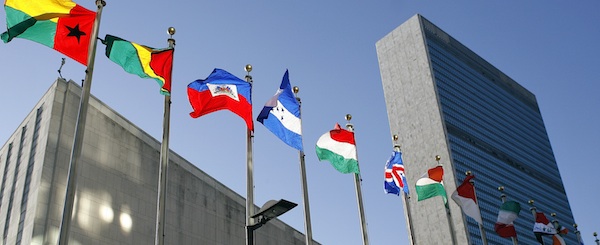General Assembly resolution 60/251 establishes that members of the Council should uphold the highest standards in the promotion and protection of human rights and fully cooperate with the Council and its mechanisms. It further determines that, when voting, Member States should take into consideration the candidates’ contributions to the promotion and protection of human rights, as well as their voluntary pledges and commitments.
On 13 October 2020, UN Member States will decide which States will sit on the Council as Members for the next three years (2021-2023). Civil society organisations are alarmed that several States running for election fail to fulfil minimum requirements concerning both the promotion and protection of human rights and cooperation with the Council and other UN human rights bodies and mechanisms.
Some of these candidates demonstrate a consistent pattern of non-cooperation with the UN human rights system, as well as blatant disregard for fundamental rights, which is incompatible with Council membership. Furthermore, some candidates have engaged in recurrent acts of intimidation and reprisals against human rights defenders and civil society organisations, who play a vital role in the Council’s work. Finally, some candidates have attacked the UN human rights system itself and have presented voluntary pledges that fail to reflect the realities on the ground.
Voting for these candidates would gravely undermine the Council’s credibility and institutional integrity.
Civil society organisations have long criticised non-competitive slates for the Council elections. However, considering that States must receive a simple majority of votes (i.e. 97) to be elected, that voting takes place by secret ballot, and that electing States are under no obligation to vote for each and every candidate within a regional group, delegations could simply refrain from voting for unfit candidates even in closed slates.
In the joint letter, the organisations urged States to treat human rights considerations and the substantive Council membership criteria outlined in resolution 60/251 as paramount when electing members to the Council by leaving the ballot blank for unfit candidate States, rather than engaging in vote trading or privileging political considerations over fundamental human rights. Further, going forward they urged States to keep Council elections competitive by presenting and supporting eligible candidacies and avoiding closed slates in every upcoming Human Rights Council election.
ISHR has prepared scorecards that provide a quick ‘at-a-glance’ objective comparison of the candidates. ISHR has also prepared letters developed with national civil society in candidate States, urging States to implement a series of specific, concrete recommendations, should they be elected to the Council. We encourage States to use these scorecards and the wealth of materials on candidates’ human rights records to guide their voting.
Signatories: ARTICLE 19; Asian Forum for Human Rights and Development (FORUM-ASIA); Asian Legal Resource Centre (ALRC); Cairo Institute for Human Rights Studies (CIHRS); Child Rights Connect; CIVICUS; Commonwealth Human Rights Initiative (CHRI); Conectas Direitos Humanos; DefendDefenders (East and Horn of Africa Human Rights Defenders Project); Global Centre for the Responsibility to Protect; Gulf Centre for Human Rights; Human Rights House Foundation; Human Rights Watch; ILGA World; International Federation for Human Rights (FIDH); International Service for Human Rights (ISHR); Movimento Nacional de Direitos Humanos – MNDH Brasil; Save the Children; West Africa Human Rights Defenders Network (ROADDH/WAHRDN).
Photo: UN Photo Joao Araujo Pinto




